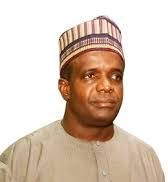Fidelity Bank records a 120.1% growth in PBT to N39.5bn in Q1 2024
In line with its upward growth trajectory, leading financial institution, Fidelity Bank Plc, has posted an impressive 120.1% growth in Profit Before Tax from N17.9bn at the end of Q1 2023 to N39.5bn for Q1 2024. This was made known in the Bank’s unaudited financial statements released on the issuer portal of the Nigerian Exchange (NGX) on Tuesday, 30 April 2024.
According to the statement, Gross Earnings increased by 89.9% yoy to N192.1bn from N101.1bn in Q1 2023. The increase was led by a combination of interest income (90.7% yoy) and non-interest income (84.0% yoy). Growth in interest income was primarily spurred by a higher yield environment and strong earning assets base, while the increase in non-interest income was led by double-digit growth in account maintenance charges, FX-related income, trade, banking services, and remittances, supported by increased customer transactions.

Commenting on the results, Nneka Onyeali-Ikpe, MD/CEO, Fidelity Bank Plc stated, “We are pleased to report another quarter of strong financial performance driven by our strategic focus on customer-centricity, digital innovation and operational excellence. Despite the challenging macroeconomic environment, we remained resilient and agile, delivering double-digit growth on key income lines while advancing our business sustainability agenda.”
In the period under review, the bank grew Net interest income grew by 89.5% yoy to N99.6bn from N52.6bn in Q1 2023, driven by interest and similar income as the yield on financial instruments improved to 14.7% from 10.1% in Q1 2023 (2023FY: 11.6%). In line with the steady rise in interest rates through the year, average funding cost increased by 80bps ytd to 5.2%. However, NIM came in at 8.8%
compared to 8.1% in 2023FY, as increafeatsed yield on earning assets surpassed funding cost to 15.1% from 13.3% in Q1 2023 (2023FY: 13.5%).
Similarly, Total Deposits increased by 17.2% ytd to N4.7tn from N4.0tn in 2023FY, driven by double-digit growth across all deposit types (demand, savings and term). Net Loans and Advances increased by 21.2% to N3.7tn from N3.1tn in 2023FY.
“Beginning the year on this inspiring note reaffirms our strategy of helping individuals to grow, inspiring businesses to thrive and empowering economies to prosper. We are committed to our guidance as we build a more resilient business franchise with a well-diversified earnings base in 2024,” explained Onyeali-Ikpe.
Ranked as one of the best banks in Nigeria, Fidelity Bank is a full-fledged customer commercial bank with over 8.5 million customers serviced across its 251 business offices in Nigeria and the United Kingdom as well as on digital banking channels.
The bank has won multiple local and international awards including the Export Finance Bank of the Year at the 2023 BusinessDay Banks and Other Financial Institutions (BAFI) Awards, the Best Payment Solution Provider Nigeria 2023 and Best SME Bank Nigeria 2022 by the Global Banking and Finance Awards; Best Bank for SMEs in Nigeria by the Euromoney Awards for Excellence 2023; and Best Domestic Private Bank in Nigeria by the Euromoney Global Private Banking Awards 2023.





 Business7 months ago
Business7 months ago
 celebrity radar - gossips5 months ago
celebrity radar - gossips5 months ago
 celebrity radar - gossips4 months ago
celebrity radar - gossips4 months ago
 Business3 months ago
Business3 months ago











